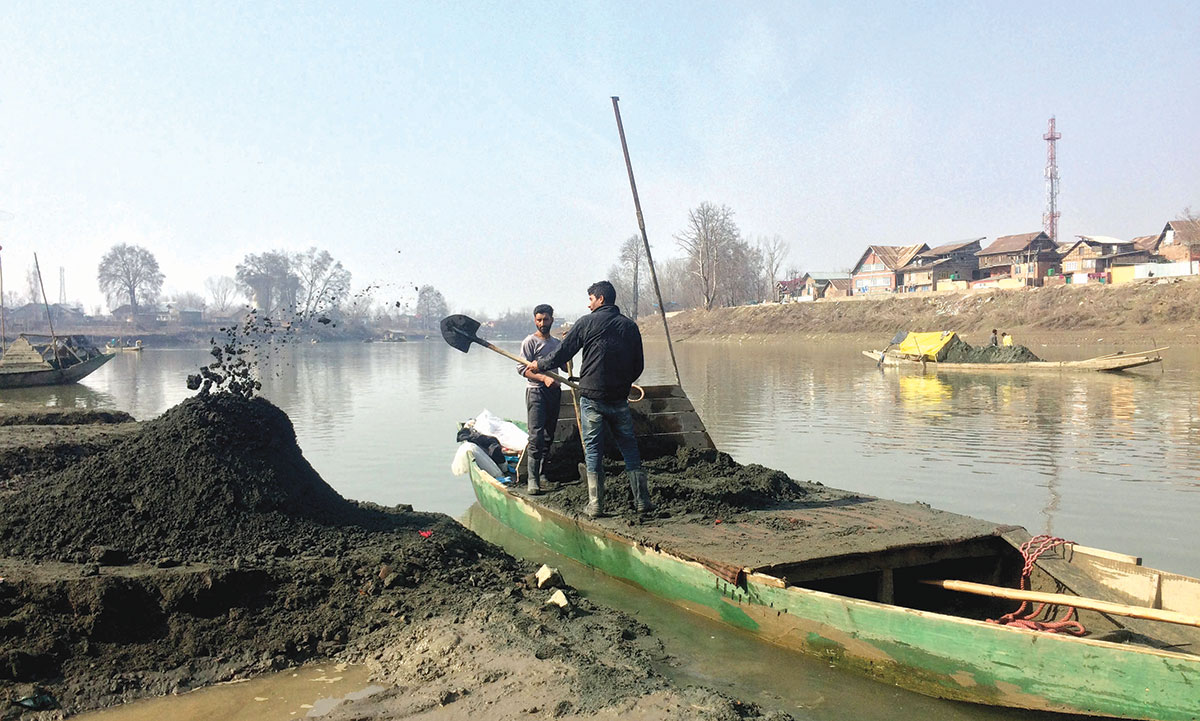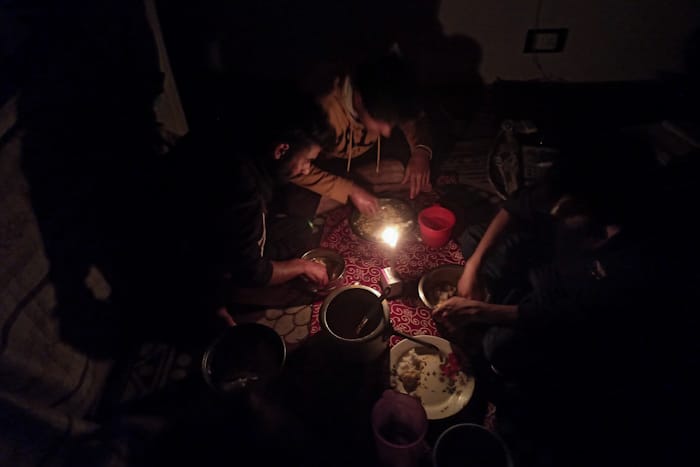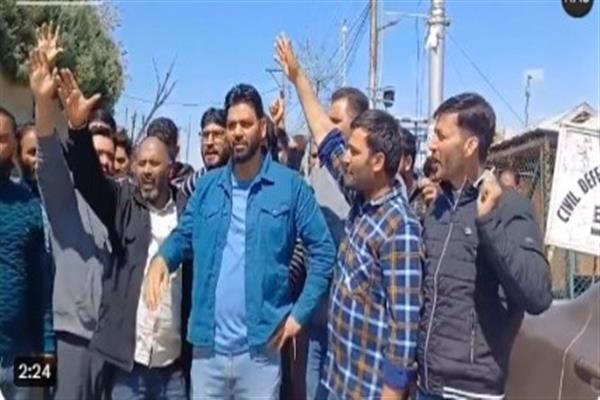For the first time ever, non-local companies have bagged a majority of contracts for the extraction of minerals from the water bodies of Kashmir.
With the bidding process being held online, many local businessmen were left at a disadvantage as high-speed Internet connectivity remains restricted in Kashmir after the Centre read down Article 370 on August 5, 2019.
More than 200 mineral blocks in Jhelum and its tributaries across all 10 districts of the Valley were opened for mining of sand, boulders, gravel and other river bed material in December last.
Non-locals walk away with lion’s share
Data accessed by Kashmir InFocus showed that non-local contractors have bagged a majority of the mineral block in every district where the bidding has been completed so far.
In the summer capital of Srinagar, all the 10 blocks have gone into the kitty of non-resident contractors against the bidding amount of Rs 5.08 crore. In Baramulla, the 38 blocks of minerals have fetched Rs 20.15 crore to the department of geology and mining. Of these, 26 have been secured by contractors from outside the Valley.
Similarly in Budgam, of the total seven blocks auctioned at Rs 4.67 crore, four on the river Jhelum have gone into the kitty of contractors from Punjab, while Kashmiri contractors have bagged the remaining three blocks on tributaries of Jhelum. Likewise, outside companies have won mining rights over more than 60% blocks in Pulwama district.
Joint director of the geology and mining department, Imtiyaz Ahmad Khan, said the bidding process has been completed in seven of the region’s 10 districts.
“It (bidding) will be over in Shopian today [Wednesday] while the process in Kulgam and Kupwara districts will be completed tomorrow,” said Khan.
List of mineral blocks of Srinagar.
List of mineral blocks of Budgam.
It all changed on August 5
Till last year, the rights for extraction of the minerals were exclusively reserved with local contractors. Most of these contractors and sand diggers associated with the extraction live on the banks of river Jhelum, which originates in south Kashmir’s Anantnag and snakes through different districts before reaching Baramulla in north Kashmir where it enters Pakistan occupied Kashmir.
After the revocation of Article 370, these mineral blocks have now been opened for contractors from across the country.
“After the relegation of J&K into a Union Territory, anybody can now participate in the bidding. We have got a very good response this time,” said Khan. “This time the revenue realisation will be far higher. It was in lakhs of rupees in the past, now the revenue will jump to crores of rupees.”
He said the department was “more concerned” about earning revenue through the auction of the mineral blocks, even as allowing large scale exploitation of the mineral resources from the water bodies has led to concerns about the impact on the environment.
The environment seems to be the least priority for the department. “The higher the revenue, things will be better for the government,” said Khan.
Another official said the department will complete issuing contracts by July end and the extraction of mineral will start by August. “Though we are in the process of finalising numbers, more than 70% of the total blocks have so far gone to the outside contractors,” the official said, wishing not to be named.
Locals hit hard
While the department claimed that there has been increased competition this year, the Internet blockade proved a major hurdle for local contractors. Internet services were snapped in Kashmir on the intervening night of August 4 and 5 last year. The service was partially resumed on January 25 this year, when the government allowed the restoration of slow-speed 2G internet in the Valley.
Though some local contractors had participated in the bidding after waiting for hours in queues outside government-run internet kiosks in Srinagar or by travelling to other parts of the country to complete formalities, a majority was deprived of a level playing field.
“Most of us came to know about the tendering process only when it was over. The government knew the local contractors won’t be able to participate in the bidding owing to the Internet blockade, but still, it went ahead with the process. This clearly shows what their intentions were—to deprive us of our only source of livelihood,” said Manzoor Malik, a local contractor from Srinagar.
He said more than two lakh people, from contractors to sand diggers, labourers and transporters were directly or indirectly associated with the extraction of minerals. Some of them, especially sand diggers have been involved in these activities for decades.
“All of them have been hit hard. How will they earn now?” asked Malik. “They aren’t even allowed to venture near the blocks.”
Another contractor, Abdul Ahad said most of the people associated with the business have been rendered jobless overnight.
“It seems the government wanted us out of this business to leave the field open for outsiders. Else, how will they justify inviting tenders online when there was no Internet in Kashmir?” asked Ahad, who has been working as a contractor for the past 26 years.
Ahad said he too could not participate in the bidding due to the Internet blockade. He is now exploring options to shift to some other business.
During the past two months sand diggers, especially from Srinagar, have held protests, accusing the government of snatching their only source of livelihood.
The official agreed the sand diggers have been the worst hit. “They used to pay royalty towards the (geology and mining) department on a monthly basis to extract sand and other material. This system which existed for decades has been shut now,” the official said.






